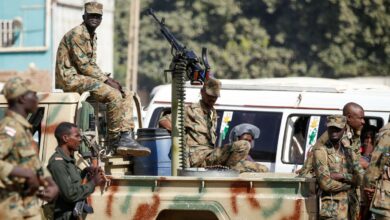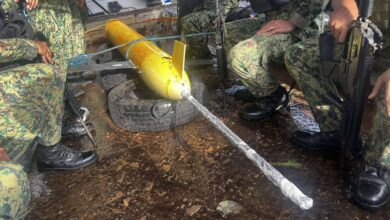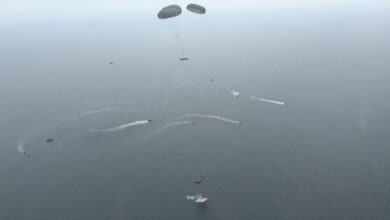France, the United States and the United Kingdom on Thursday, June 14 put a hold on a request from Central African Republic for United Nations Security Council approval of weapons shipments from China for its armed forces.
CAR’s defense minister Marie Noelle Koyara asked a U.N. sanctions committee on June 5 to grant an exemption to an arms embargo and allow the Chinese shipments.
China is donating the equipment to Central African Republic and the list of equipment to be shipped by China’s Poly Technologies includes 12 armored vehicles and four assault vehicles, 300 rockets, 500 anti-tank grenades, 50 pistols, six sniper rifles, 10 submachine guns with silencers, around 30 machine guns of various calibers, 15,000 tear gas grenades and 725,000 rounds of ammunition.
The United States noted that there was “no threat of an air attack in CAR” and questioned deliveries of eight grenade launchers, four anti-aircraft machine guns as well as anti-personnel grenades and rockets, according to a document obtained by AFP.
In its note detailing objections, the U.S. mission to the U.N. argued that special training was needed to operate the grenade launchers “which we are not certain has been provided.”
France said it had “concerns concerning some lethal equipment included in this exemption request,” citing anti-aircraft weapons and ammunition. The French mission to the U.N. requested “additional justifications concerning this lethal equipment in order to be able to take a decision.”
The U.K. said it was concerned that the shipments would travel unescorted through Cameroon to the border with land-locked Central African Republic.
The council imposed an arms embargo on Central African Republic in 2013 when the country descended into bloodshed but its sanctions committee last year allowed Russia to supply weapons to the country’s forces. The Security Council in January unanimously extended its sanctions against CAR until January 31, 2019.
Weapons request backed by UN, EU
CAR’s leaders have repeatedly asked the Security Council to ease the arms embargo to allow shipments of equipment that will beef up the national forces.
In her request to the U.N, Koyara said the weaponry would help strengthen national forces who are “confronted with the strength and escalating violence of armed groups whose illegal activities pose a threat to civil order.”
“Building up the defense and security forces, alongside Minusca, and progressive deployment of those forces safeguards the security of people and ensures the progressive enforcement of state authority,” Koyara wrote.
The request for the Chinese weaponry is backed by the European Union military training mission and by the U.N. peacekeeping operation Minusca, which has come under repeated attacks from armed groups. Five blue helmets have been killed this year, including one peacekeeper killed in Bambari last week.
Most of the armored vehicles and other weaponry would be used by special forces trained by Rwanda and certified by the E.U. training mission.
France and the U.N. Mine Action Service have helped CAR’s defense ministry set up armories and ammunition depots for the deliveries, which the request stated should take place in June.
In her request, Koyara argued that tear gas would help gendarmerie and police deal with crowd control as the “units do not currently possess any of this equipment designed to maintain order.”
Units of CAR’s gendarmerie and police were trained by U.N. police.
The Central African Republic exploded into violence following the 2013 overthrow of longtime leader Francois Bozize, prompting France to intervene with its Operation Sangaris. Minusca took over an African Union-led mission in 2014 and is now around 15,000 strong.
In April, President Faustin Archange Touadera said he wants to “accelerate” the disarmament of members of armed groups in Central African Republic, calling for more peacekeepers to be deployed, and for the U.N.’s Minusca mission to transition from peacekeeping to peace enforcement.
Touadera’s weak government controls around a fifth of the Central African Republic and relies heavily on Minusca for support. The rest is controlled by at least 14 different militia groups – the mainly Christian anti-Balaka in the southwest and mainly Muslim ex-Seleka in the northeast – who often fight each other for control of revenue from extortion, roadblocks or mineral resources.
With reporting from AFP












